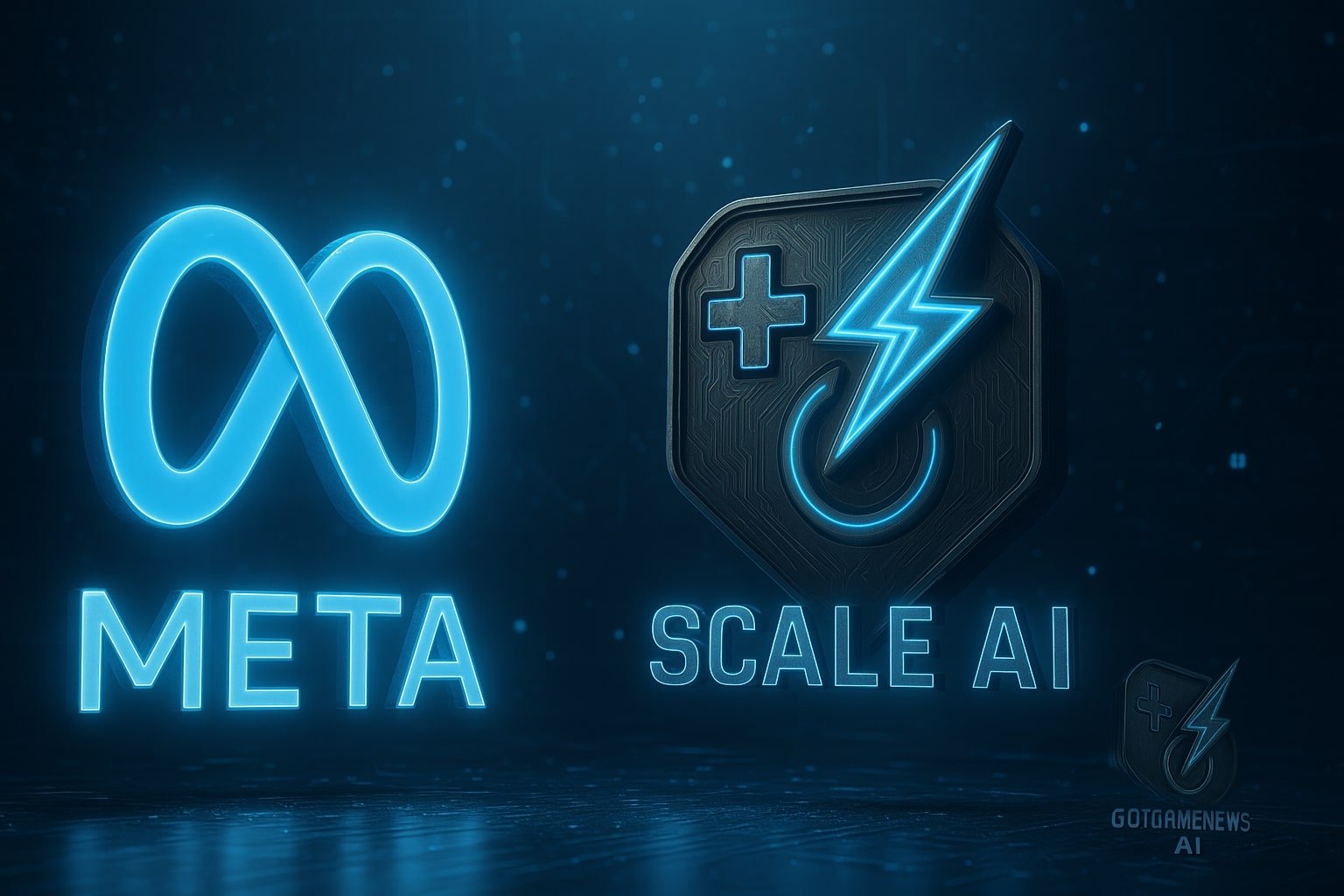Some power plays arrive with fireworks. This one arrived wearing gloves.
When Meta paid $14.8 billion for a nearly 49% stake in Scale AI—without even touching the CEO title or grabbing board control—it was, on paper, “just” an investment. No merger paperwork. No gauntlet of regulatory hearings. Just a polite knock at the edge of the most important AI dataset gatekeeper in Silicon Valley.
But if you zoom in just slightly, you can see the outlines of something far less surgical—and far more existential.
What Happens When the Bridgekeeper Lets One Knight In First?
Scale AI is not just another vendor in the AI stack. It’s the scaffolding—the thing others build on. Annotated data, the kind that trains LLMs and vision models to distinguish between “street sign” and “stop sign,” is arguably the most crucial material in modern AI. And Scale has it, in absurd volumes.
Now Meta, maker of LLaMA and poster child for “open weights with closed ambitions,” has embedded itself in the very organism that feeds everyone.
That makes the move less like buying shares in a railroad—and more like quietly becoming the dispatcher for all freight.
When Is a Minority Not a Minority?
Meta’s lawyers are likely sipping espressos right now, beaming about the precision of this deal’s structure: non-voting equity, under 50%, no formal board control. But regulators know better. Influence is not always written down—it’s often exercised in who returns whose calls. And who builds their next model with whom.
Scale’s CEO, Alexandr Wang, is now heading up a new Meta “superintelligence” unit. He also remains a Scale board member. The man in the middle seat now designs the next jet engine…and still has the keys to the factory.
The FTC doesn’t need a smoking gun to act—just the scent of it. And this? This smells like a controlled burn with plausible deniability.
Of Defections and Dominoes
Within weeks of the deal, Google dropped Scale. OpenAI and Microsoft are reportedly inching toward the door. Their logic is simple, if unsentimental: If Scale’s backend pipelines are even perceptually compromised, that’s enough. The trust has to be clean, or it’s not trust at all.
This isn’t just a reshuffling of vendors—it’s a slow exodus from the town square. And that could leave Scale either wholly dependent on Meta, or forced to rebrand as something it never wanted to be: exclusive.
The Crowd Below the Cloud
Then there’s the layer almost no one talks about—the gig workers behind Remotasks, Scale’s annotation arm. The people labeling photos, segmenting 3D lidar point clouds, cleaning chat logs, and marking boundaries around ambiguous meaning…they’re not stockholders. They’re not even named in press releases.
Their labor helped build Meta’s future, and the compensation? Flat rate. No windfall, no health insurance. Not even a tweet of thanks.
One annotation worker in Nairobi told Time: “We train AI to talk to humans, but no one listens to us.” The irony is thicker than the NDAs they’re required to sign.
A Tilted Chessboard in the Making
Meta’s defenders argue the deal democratizes power—injecting resources into Scale, advancing open research, breaking the monopoly of OpenAI and its tight Microsoft bond. That’s not untrue.
But there’s a deeper truth: when only emperors are allowed to fund the republic, the republic becomes a curated kingdom. Scale’s independence was what made it valuable. It let Google, Meta, Amazon, xAI, and dozens of startups all drink from the same well.
Now, the water’s still flowing—but half the well is locked behind a door that only Meta has a key to.
The Next Phase: Interference or Precedent?
Will the FTC step in? Will the EU wave its Digital Markets Act like a flaming sword? Maybe. But the real question is subtler:
What if they don’t?
What if this becomes the new normal—partial acquisitions as policy, talent merges as loopholes, supercomputers fed by the uncredited hands of ghost labor?
We’ve seen this play out before in entertainment, in telecom, in games. The difference is, this time it’s not just content that’s at stake.
It’s cognition.
So let’s talk. If Meta just bought a backdoor into AI’s most important training forge—should the rest of the world be forging its own? Or are we too late?





